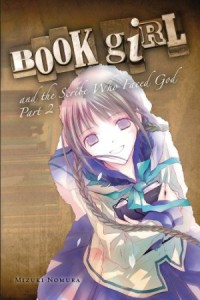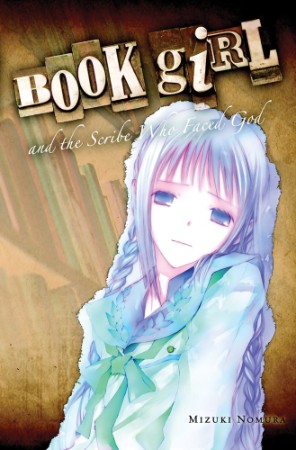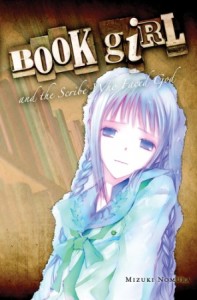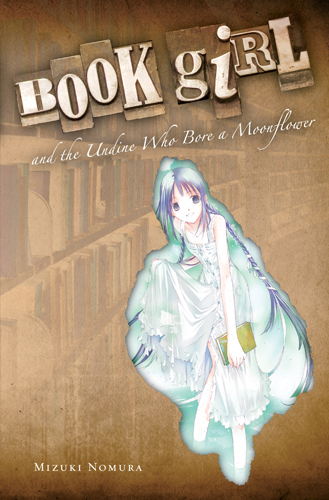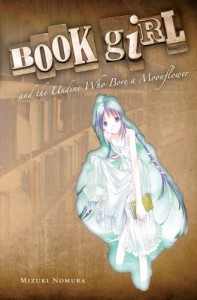By Mizuki Nomura. Released in Japan by Enterbrain. Released in North America by Yen Press.
And so we finally get to the book that wraps everything up, and it’s appropriate that it also dips back into the previous seven books so much. Everything here has been interconnecting far more than we expected at the time, and, as Chie herself noted, people did not get magically healed after the tragic events that happened to them. Still, most everyone seems to be working things out to a certain degree as they graduate. Even Konoha, who has finally come to terms with the fact that once he removes writing from all of the triggers it presents to him, he actually loves doing it.
Konoha has been a very frustrating character to read through this series, and can be that way here as well, at least for the first half. His relationship0 with Nanase is sweet and innocent and pure poison to absolutely everyone involved, even if Ryuto’s attempts to break them up through threats and violence are even more dumb. I actually feel bad for Nanase – not only does she lose out on Konoha in the end, but she also ended up being the least developed character, really. The tragedy in her focused book happened to her best friend, leaving her to be the prime example of the pure tsundere shonen heroine that pines away even as she knows deep in her heart that something is wrong. I hope one of the side-story sequels in Japan features her and gives her more depth.
Ryuto and Tohko tie together, of course, and while I still think he makes every wrong decision imaginable in this series, I can now sympathize with Ryuto’s intentions and see why he tries to torture himself so much. He and Chie still make a weirdly twisted couple, and her actions towards the end were not surprising but still managed to pack a punch. As for Maki, she finally gets what she wants out of life. Her painting of Tohko included. She’s an excellent positive example of how to beat overwhelming odds through sheer determination, and probably still my most favorite character in the series.
Finally, Tohko and Konoha, and the backstory with Tohko’s parents. This is where most of the plot twists come in, some of them mere lines after the last. I have not read Andre Gide’s Strait Is the Gate, the book that features so heavily, but it ties into Tohko’s life heavily. Tohko in the end is simply an incredibly nice girl who wants to see people happy and doing what they do best. She also knows that Konoha needs to write, and his rejection of her basically hits all if her emotional trauma buttons. I’m still not sure I like the idea of them as a romantic couple – I think they’d be excellent best friends and a writer/editor team. But they’re the best part of this book, and I liked that it was Konoha who got the big dramatic speech tying the tragedy into the book this time around.
Book Girl has been a roller coaster of teen trauma, and really didn’t have *too* much supernatural content – Tohko’s nature really isn’t examined all that much. It’s the perfect novel series for someone who wants a book for teenagers but wants to avoid all the cliches that plague most Japanese light noels that are translated into English. Character you care about, twisty plots, and an overwhelming love of books. I want to read it all over again. Luckily, I don’t eat books, so I can do so fairly easily. (Tohko must hate e-readers.)

